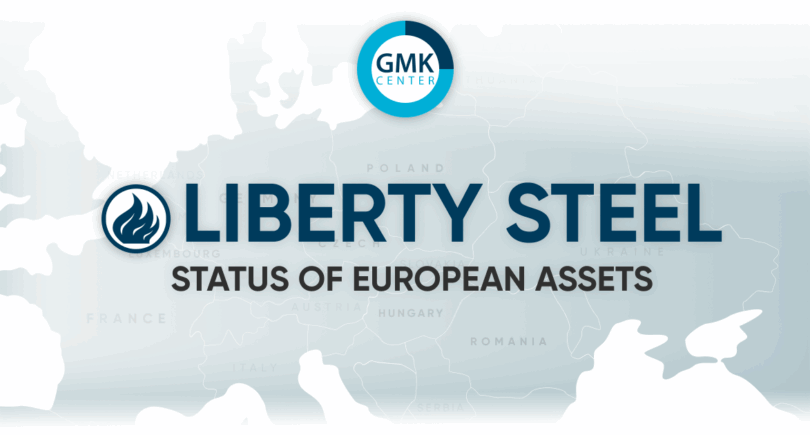
Companies face imperfect transfer pricing control, non-refund of VAT and negative impact of currency restrictions
During the war, Ukrainian exporters face many problems caused by both the hostilities and ambiguous practices of regulatory authorities and the consequences of insufficiently thoughtful management decisions by the authorities. Among these problems are questionable methods of transfer pricing control, non-refund of VAT, various currency restrictions, etc.
About 40 representatives of business (exporting companies, law firms, etc.) and the expert community (including specialized associations) discussed this wide range of issues at the roundtable «Problems of Exporters in Time of War: Regulatory Challenges» organized by GMK Center.
Nuances of transfer pricing control
One of the main concerns of Ukrainian iron and steel exporters is the imperfection of the transfer pricing control (TP) system. In particular, the Supreme Court of Ukraine’s conclusion in the Poltava Mining case dated 27.06.2022 allowed the State Tax Service to use PLATTS quotes as the sole source of information for any TP transaction within the mining and energy sectors.
According to Volodymyr Bevza, Metinvest Holding’s lead legal counsel, PLATTS price quotes are the result of subjective judgment, and it is impossible to control their correctness. The use of PLATTS in TP control cases can lead to pressure on business, as the use of certain quotes can easily make any export-oriented Ukrainian iron and steel company unprofitable. Also, PLATTS does not disclose the sources of information and the methodology for calculating indicative prices. Moreover, the use of one single source of information itself contradicts the essence of the TP. The speaker also provided evidence that the PLATTS rules (subpara 14.1.269-270 of Article 14 of the Tax Code) do not regulate pricing in controlled transactions within the TP framework, but were adopted by the legislator in 2015 specifically for the taxation of rent from mineral extraction.
«According to the Big Four audit firms, the practice of using a single source of information in transfer pricing calculations does not exist anywhere in the world. It can be concluded that Ukraine’s experience contradicts international practice (OECD comments and UN recommendations) and discriminates against Ukrainian business. It is worth noting that the recognition of Platts as the only source of information for TP control is not established in Ukrainian legislation and is manipulative on the part of the State Tax Service, as these rules regulate only rent payments,» explains the legal counsel.
This decision of the Supreme Court set a precedent, and the State Tax Service began to apply it not only to Metinvest and Ferrexpo mining and processing plants, but also to steel enterprises that generally belong to another sector of the economy.
Moreover, Ukrainian tax authorities often bias TP control rules in their favor and use outright manipulation. In particular, when controlling TP, the tax authorities increase the company’s income without a symmetrical increase in expenses in the country of the non-resident purchasing a certain product. This leads to double taxation of such adjustment in Ukraine and the country of the non-resident, which is a party to the double taxation agreement.
«The treaties provide for a double taxation avoidance mechanism for such cases, i.e. the counterparty country often has to grant the right to make a symmetrical reduction of the tax base. However, such a reduction is not automatic – in the course of consultations, it is necessary to convince the competent authority of the counterparty’s country of registration that the adjustment in Ukraine was made taking into account generally accepted approaches to TP. And if the approaches are “unilateral” and openly contradict such approaches, it will be quite difficult to convince the fiscal authority of another country,» says Ivan Shynkarenko, partner at KM Partners.
According to the expert, the way out of this situation is to work out mutual coordination procedures with the involvement of the relevant authorities of the countries where non-resident partners are located. In this case, the Ukrainian tax authorities, which often distort facts, will no longer be able to manipulate TP rules before judges, who may not always be able to fully appreciate all the complex aspects of transfer pricing, but will face their foreign counterparts who have their own fiscal interests.
For her part, Natalia Artemchuk, coordinator of the EBA Tax Committee, noted that the association is preparing its position on the ambiguous approaches of the tax service in TP control, which will be made public in the near future.
Problems with VAT refunds
Another problem for Ukrainian exporters of iron and steel is the issue of blocking or delaying VAT refunds, which has recently become critical. According to Iryna Yevsyukova, Head of Accounting at Ferrexpo, the company faces two key issues:
- Blocking of tax invoices. She noted that this problem is familiar to many companies.Tax authorities block tax invoices. As a result, companies lose money and are unable make financial planning. This problem is especially acute during martial law.
- Refusal or delay in VAT refunds. One of the reasons is the blocking of tax invoices, the other is the inability of counterparties to trace the procurement chain.
«The problem of VAT refunds for exporters existed even before the full-scale invasion, but now its impact and consequences are becoming critical. This applies to the purchase of inventory from companies that have shareholders or ultimate beneficial owners related to the aggressor country,» adds Inna Polutsyganova, Head of Corporate and Legal Affairs at Centravis.
According to her, in the case of Centravis, the information about the «Russian trace» is not true, but the tax authorities do not recognize the company’s right to a VAT refund. The company tried to appeal this decision administratively, but it did not bring any results, so the problem was resolved in court. Centravis and the counterparty have already received several positive court decisions, and several cases are still pending, but taking into account cassations, they may last for years. The company appealed to the competent authorities, in particularly, the Cabinet of Ministers, the Ministry of Finance, the State Tax Service, and the Ministry of Economy, asking to resolve the situation and adjust the legislation, but those appeals did not succeed.
All efforts have not yet led to a solution to the problem of unrecovered VAT, which has amounted to UAH 312 million (excluding fines) since March 2022. This means a drain on working capital, the need to find alternative suppliers, and overpayments for raw materials, which increases production costs and makes the company less competitive.
Currency restrictions
Another important issue for exporters is excessive currency regulation, uncertainty and unclear application of currency restrictions. One example of legal uncertainty is the existence of a deadline for the return of foreign currency earnings, which is currently 180 days. According to Olexander Minin, senior partner at KM Partners, the NBU (National Bank of Ukraine) may introduce a deadline for settlements under foreign trade contracts for up to six months. The last time it was introduced by the NBU Resolution No. 113 dated 07.07.2022, the rule expired on 08.01.2023, and as of now, this period has not been set.
«This is a problem, as taxpayers go beyond the 180-day deadline for returning foreign currency earnings for various reasons. The reasons may include late payment by the buyer, late delivery of products under the contract, and procedural issues,» the expert explains.
For her part, Interpipe’s GR Director Natalia Sydoruk believes that the deadline for returning foreign currency earnings should be extended, as it is not always possible to meet this deadline in the face of logistical problems and exports to remote markets. According to her, the Ministry of Economy, which issues permits to extend these deadlines, is already considering amending the relevant resolution that regulates the procedure for issuing them.
The second aspect of the deadline issue is that the tax authorities strictly monitor compliance with it, and in case of violation, they do not hesitate to charge a penalty of 0.3% per day from unreceived revenue or value of undelivered products.
According to Vladyslav Zhabsky, partner at LBASE Law Firm, there are several options to resolve the situation legally if the return of foreign currency earnings is not possible within the deadline.
- Obtaining a conclusion from the Ministry of Economy on the extension of the timeframe for the execution of a foreign economic contract (until the deadlines for settlements under the contract are expired).
- Filing a lawsuit against a non-resident or initiating arbitration (depending on the terms of the contract).
- Offsetting counterclaims if the parties to the contract “owe” each other money.
- Applying to the authorized body of the country where party of the foreign economic contract is located to obtain a document certifying the force majeure.
- мObtaining a certificate from the Ukrainian Chamber of Commerce and Industry.
«There are two important aspects in this case. Firstly, it is not easy to obtain such a certificate – there must be a solid evidence base that certain force majeure circumstances caused the failure to fulfill the contract. Secondly, even if such a certificate is available, during a tax audit, you need to provide as many additional documents as possible to trace the causal link,» adds the lawyer.
In addition, important issues for large export-oriented companies also include the expansion of the established currency limits and conditions for the payment of dividends and interest on “old” debts. Even though the NBU has eased currency regulations, the problem of servicing foreign loans has not been fully resolved.
«If we look at the measures taken by the NBU to liberalize currency restrictions, we see a number of easements for state-owned enterprises that can service loans under certain conditions. One of the latest changes also concerned the ability to service “new” loans. But the issue is that Ukrainian companies received loans before the war, and they cannot take advantage of what the NBU offers,» notes Natalia Sydoruk.
According to Oleh Krykavskyi, Director of Government Relations at ArcelorMittal Kryvyi Rih, the company faces individual liability for the non-return of foreign currency earnings by its counterparties (during the implementation of pre-war investment projects). ArcelorMittal has appealed to the NBU, but has not yet been able to resolve this issue. At the same time, he notes that despite some liberalization of currency legislation, no fundamental changes should be expected during martial law.
«All this looks like a targeted state policy against Ukrainian companies, whether with or without foreign investment. Companies should not be afraid of an open dialog with the authorities and speak publicly about their problems. The authorities are afraid of publicity, they want to be praised, but when there are certain wrong things on their part, companies should not be afraid to talk about it,» summarizes Ksenia Orynchak, Executive Director of the National Association of Extractive Industries of Ukraine.





